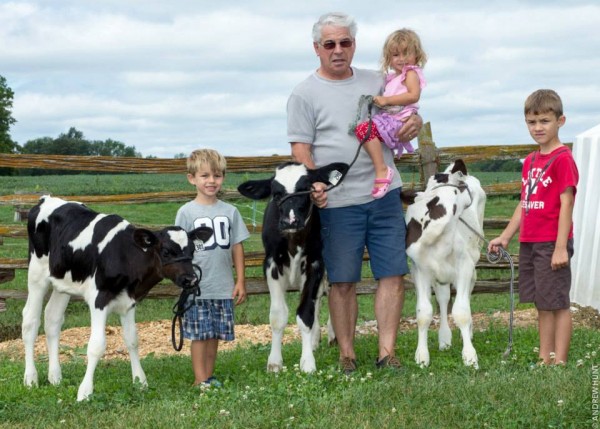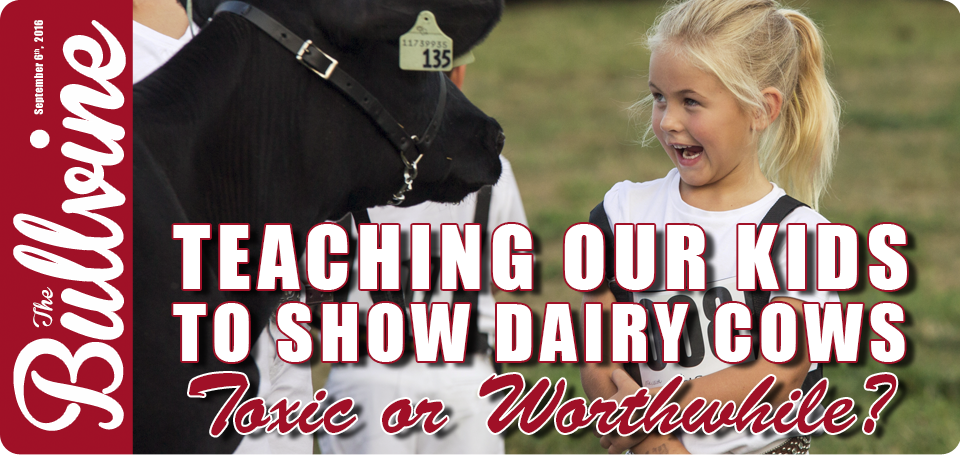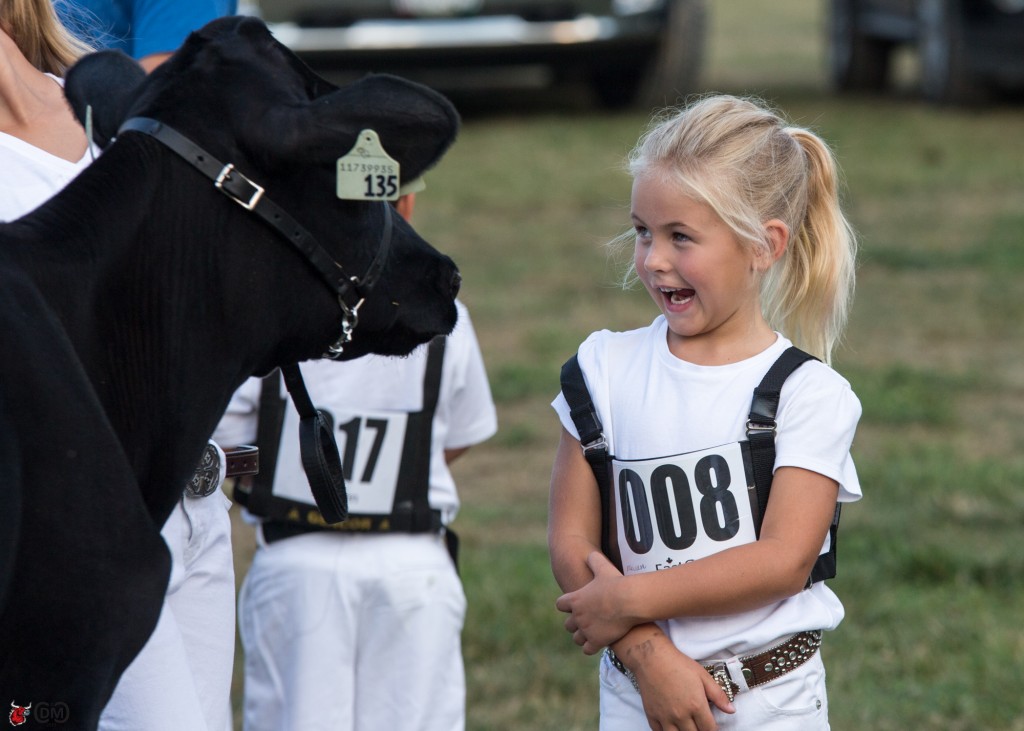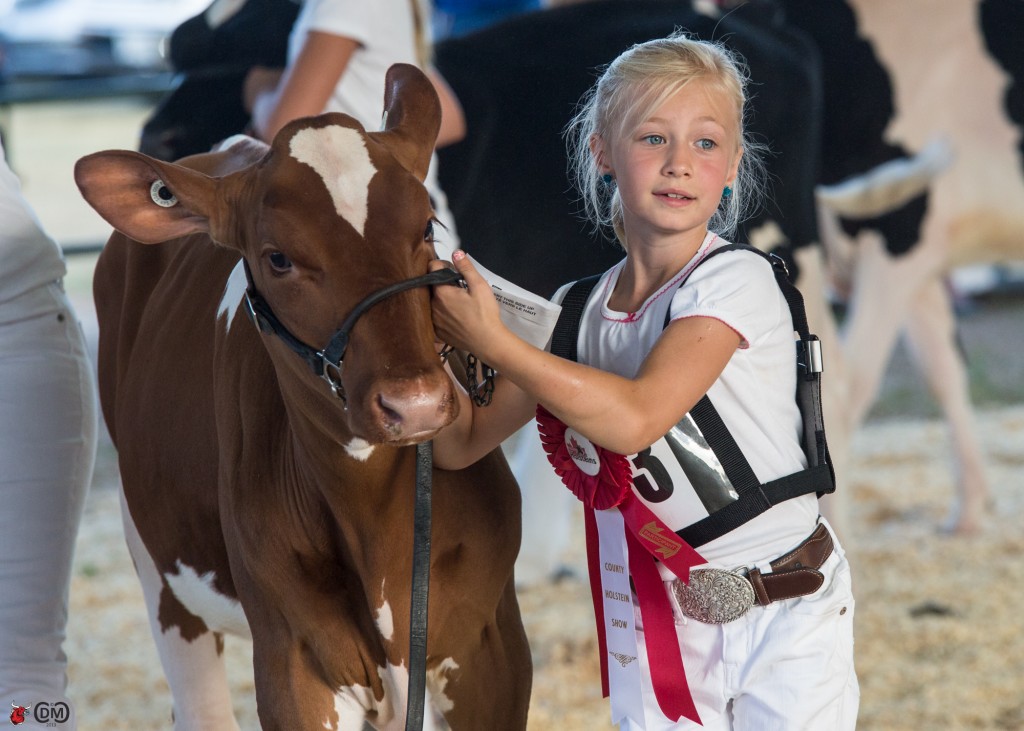As we roll into fall, there is a whole smorgasbord of competitions to get excited about. Sure the Olympics are over, but the American election, baseball season and football are just getting underway. Of course, most of us aren’t part of those races, but we love being armchair quarterbacks and statistical analysts. We have loud and often heated discussions about the basic dishonesty of the candidates, the players or the league themselves. Likewise, when it comes to the dairy industry that we are part of, there is huge debate about whether the competitive aspects of the dairy show ring are worthwhile or toxic. Beneficial or detrimental?
This year, as in every year up until now, as show season heats up so do the arguments about why competition is bad, pointless or fixed. “There’s no way we are going to win at that show! “some say. And, of course, they’re right! They’re not going to win…because they have already eliminated themselves from the competition. Their bias against competition has guaranteed their defeat. At Huntsdale we’re biased too! We love competition. Kids! Calves! Trampolines or Vacuuming! Give Murray and I something that needs doing and we will find a way to make it into a competition. (Read more: For Love of the Ring)

Murray teaching three of his grand children to show calves.
“You Can’t Find Excitement if There isn’t a Contest.”
As long as I can remember, for me both fun and work incited passion, if competition was involved. When I had children of my own, this began to change. Most adults reading this article will have been touched by the “competition is unhealthy” trend. As a teacher, I was strongly discouraged from using competition as a motivator. As a parent, I have watched children completely lose interest in entry level sports where no one keeps score, there are no league winners and no 1st, 2nd or 3rd place trophies. Everyone gets the same participation ribbon and the end-of-season pizza party. And everyone is bored! The theory is that this avoids the anguish associated with competitive sports for young players. It also bears no resemblance to what they see their parents getting passionate about. Is it any wonder that video games hold so much appeal?
“If you want to Win, you’ve got to be focused on the Goal”
We aren’t so far past the Olympics in Rio that we have forgotten seeing what it takes to be the best in a competition. Winning Olympic athletes eat, breathe and sleep their sport. Competitive, dairy farmers and their families are also familiar with the 24/7 lifestyle that is needed to achieve success. And, like athletes, the training begins early in life. In one case, it’s to become the best at a sport. In the other, it’s to produce the best dairy animal in the ring. From the outside looking in, it may seem that this desire to win, borders on obsession. For those young dairy exhibitors who achieve the highest level of success, passion is needed. Those who “settle for average” or “I got the t-shirt” or “I’m in it for the experience” have never taken their dairy passion to the next level.
“You’ve got to Train and Be Prepared”
Those who reach the podium do so because they have a focused plan and routine. There are daily repeated actions. You don’t suddenly enter the show ring on show day and automatically have a calf that exhibits proper head carriage, and that is under control at all times. The kind of style that sets winners apart from the group takes training and preparation. Champions, in any field, take the time to discover what is required to perform at a higher level every day.
“There’s no such thing as effortless competition. Winners are average dairy people who have made above average effort.”
I thoroughly enjoy working with young people with agricultural backgrounds who compete in speaking or writing about agriculture or by showing their calves at dairy shows. The challenge for them and I is to stop thinking about the reasons why they won’t win: “I’m too young” “I’m not well-known” or “The judges don’t recognize how much I’ve put into this.” The challenge is to think about how hard the judge’s job is. I tell them, “Judges have a short amount of time to separate the best from the rest. Your job is to make their job easier!” Whether it’s speaking from a stage or walking around a show ring, you have to demonstrate what makes you stand out from the crowd. And by that, it’s not how you draw attention to yourself. It means that you have done everything in your power to make sure that your calf is the center of positive attention. Well-trained. Effortlessly set up. Your speech is polished, entertaining and unique. Winners gain a competitive edge by doing all those little things every day that the competition doesn’t.
“Don’t Blame Your Results on Bad Judging”
We all know, there can be what appears to be biased judging. However, to use that as an excuse for poor performance is only hurting yourself and your show ring goals. In the big picture, judges only have their reputations to fall back on, if they want to continue judging and make an impact on the dairy industry. In the show ring, there is one judge, but everyone at ringside is watching and judging the outcome too. Leave the excuses at home. The judges don’t know that you practiced with your calf every morning for three months. They don’t know that your calf has just recovered from a severe hoof trimming job. All they see is what is in front of them. This isn’t about what you did at all the local shows leading up to this competition. It’s not about how well you do most of the time. It’s about giving 110% right now.
“It’s not about how far you have come. It’s about where you’re going from here!”
We all know our story. We are aware the obstacles we have overcome. We usually have a great support team who build us up with encouragement for everything we have achieved. As we rise to higher levels, we need to remember that that competition is also increasing. The greatest success happens when we do well against those we recognize as being a good or better than we are. Having said that, it’s not about beating particular opponents. This is no time to worry about who you are up against. In reality, you are always in a fight against your biggest opponent…yourself. The weaknesses that could make you lose are your fears, your doubts, and your poor preparation. Don’t run from identifying these chinks in your armor. Knowing your weaknesses and those of your calf is the best preparation you can have if you are determined to make it to the podium. Do the best with what you have. Don’t settle for anything less! And when you win, be humble and then…. prepare for your next challenge.
“Nothing is a sure thing. Problems happen. Learn how to handle defeat.”
It is especially discouraging when you feel you have given your absolute best effort and still did not win. It seems trite but sometimes we learn more from failure than from success. We all feel for athletes who carry great expectations on their shoulders and then face defeat. The same thing happens in the dairy ring. Learning how to handle failure builds character. We get to admire those who accept the better taste of loss and move on—no matter how difficult that might be. If we want the next generation to be successful in the dairy industry, this is probably one of the most important things to help them to understand. You’re never too young to learn to face challenges and test your will to persevere. It doesn’t matter how many times you get knocked down, you’re never out for the count until you fail to get back up!
Three Ways to Change the “Win at All Costs” Attitude
As much as I would like to proclaim that there is no downside to competition, we all know that isn’t true. Some evidence suggests that competition can promote anxiety and damage self-esteem. It takes courage against this evidence to prepare children for the reality of the real world and particularly for the challenges of the dairy industry.
It seems that we seek a middle road that encourages conditions that make competition enjoyable while still enhancing performance. While seeking the podium or the trophy, we want to encourage our children to see the bigger picture of how excellence helps the larger dairy industry.
Our peers are not our competitive enemies. Instead, they are setting higher benchmarks that we all seek in raising and showing better dairy animals. Three simple steps to make competition healthier include
- Encourage more children to get involved in competition.
- Recognize excellence and effort when others achieve it.
- Be a resource for training and support for those who seek to improve.
These basic steps are aimed at a spirit of cooperation even in the midst of competition. When our children lose, as they inevitably will, they will learn to accept encouragement for the next time. The goal is to take the emphasis off winning and put it on mastery. In this way, the individual, the team — the dairy — will grow in the process.
The Bullvine Bottom Line
I am always trying to improve my ability to seek cooperation over competition so that I can build stronger teams at home and in the community. One morning recently Murray and I met at the coffee maker after we had been working in separate rooms preparing articles for The Bullvine. I’m writing on “competition in the show ring.” I said. “I’m nearly finished the one I started!” bragged Murray and added, “I will send it off soon!” Hmmm. “Not if I send mine first!” I replied. The coffees were forgotten, as we both hastened back to our desks. Competition. For sure! Cooperation. A work in progress.
Get original “Bullvine” content sent straight to your email inbox for free.










![DSC04112[1]](https://www.thebullvine.com/wp-content/uploads/2016/09/DSC041121-300x200.jpg)
![DSC05399[1]](https://www.thebullvine.com/wp-content/uploads/2016/09/DSC053991-200x300.jpg)










Leave a Reply
You must be logged in to post a comment.